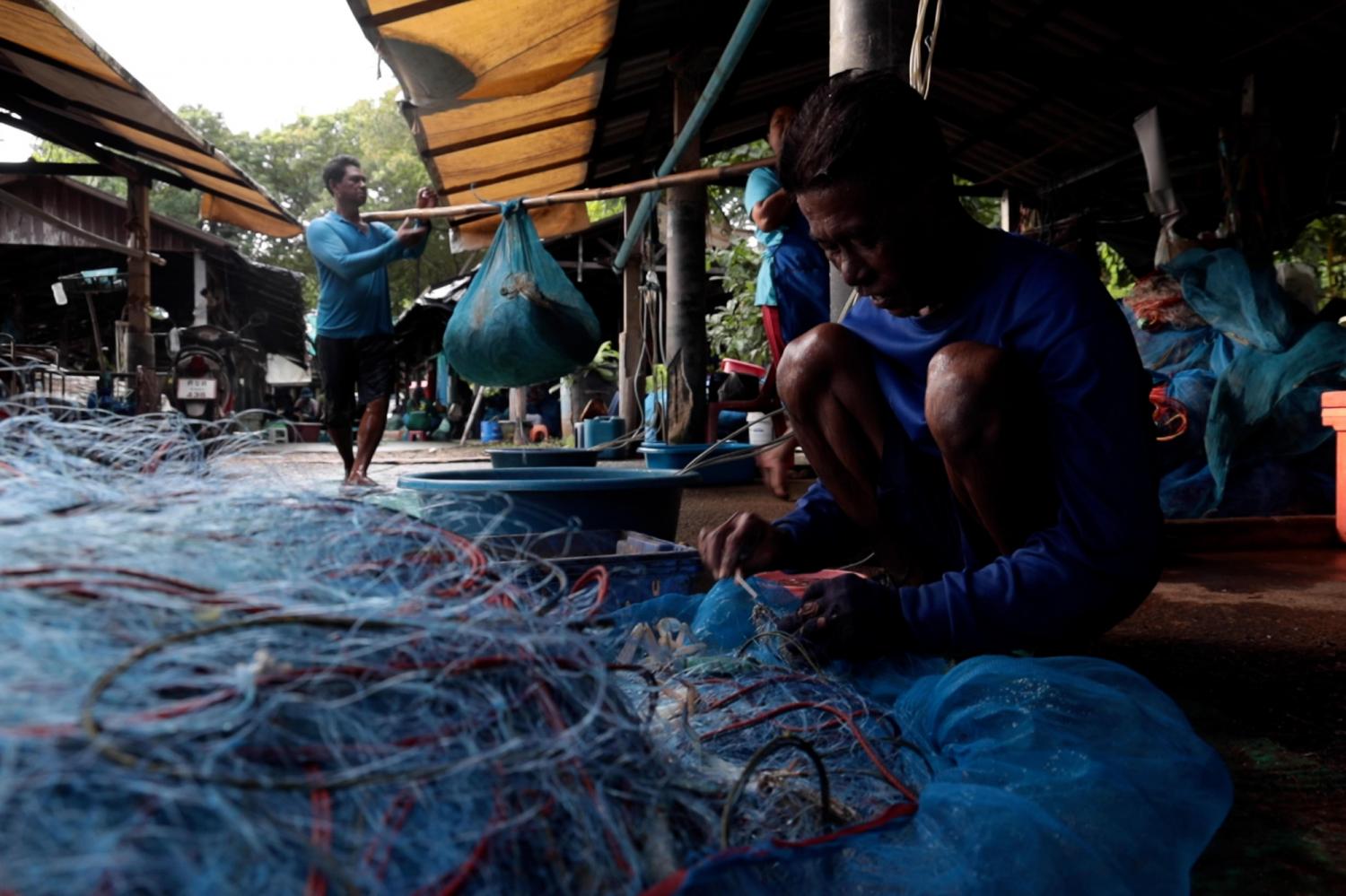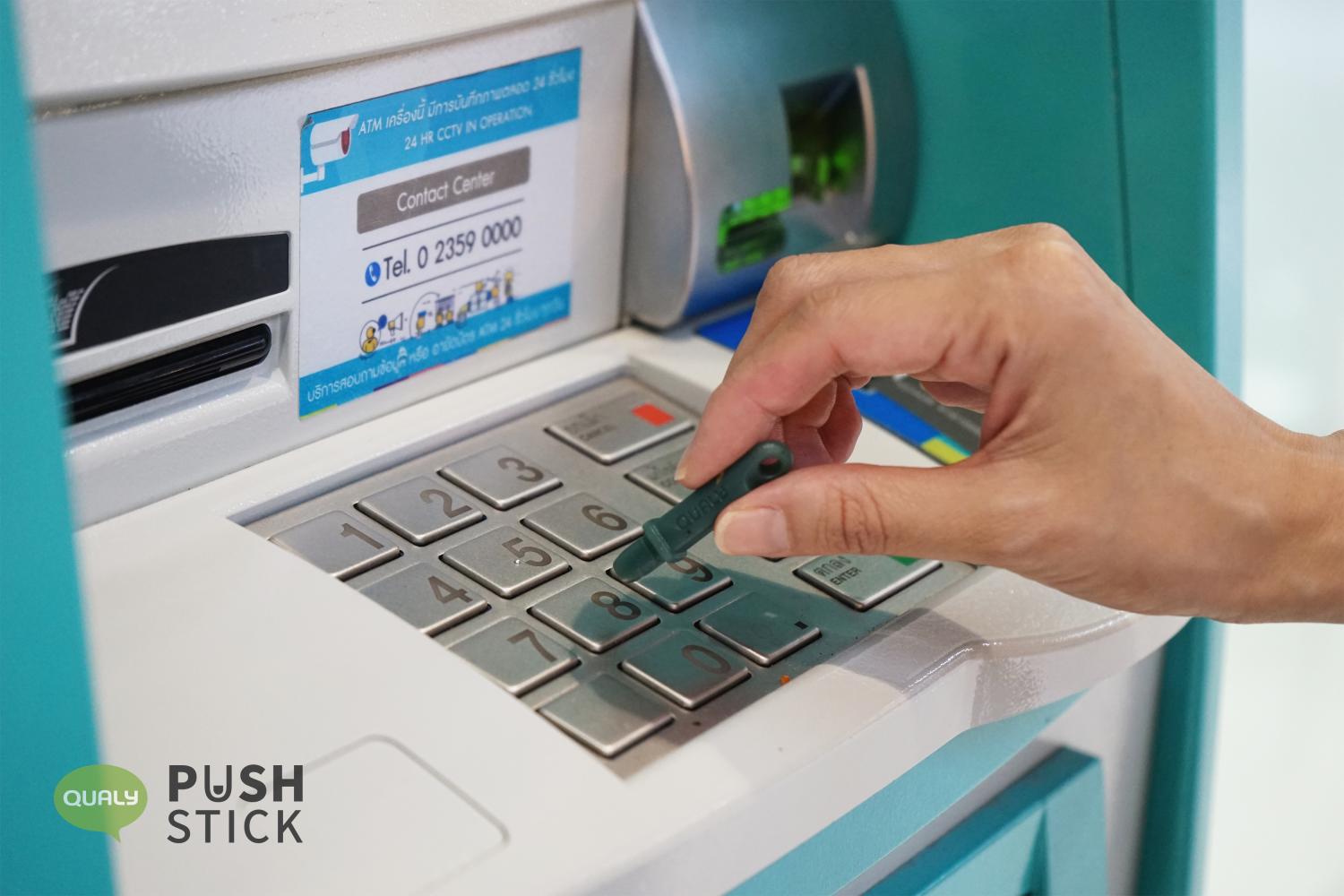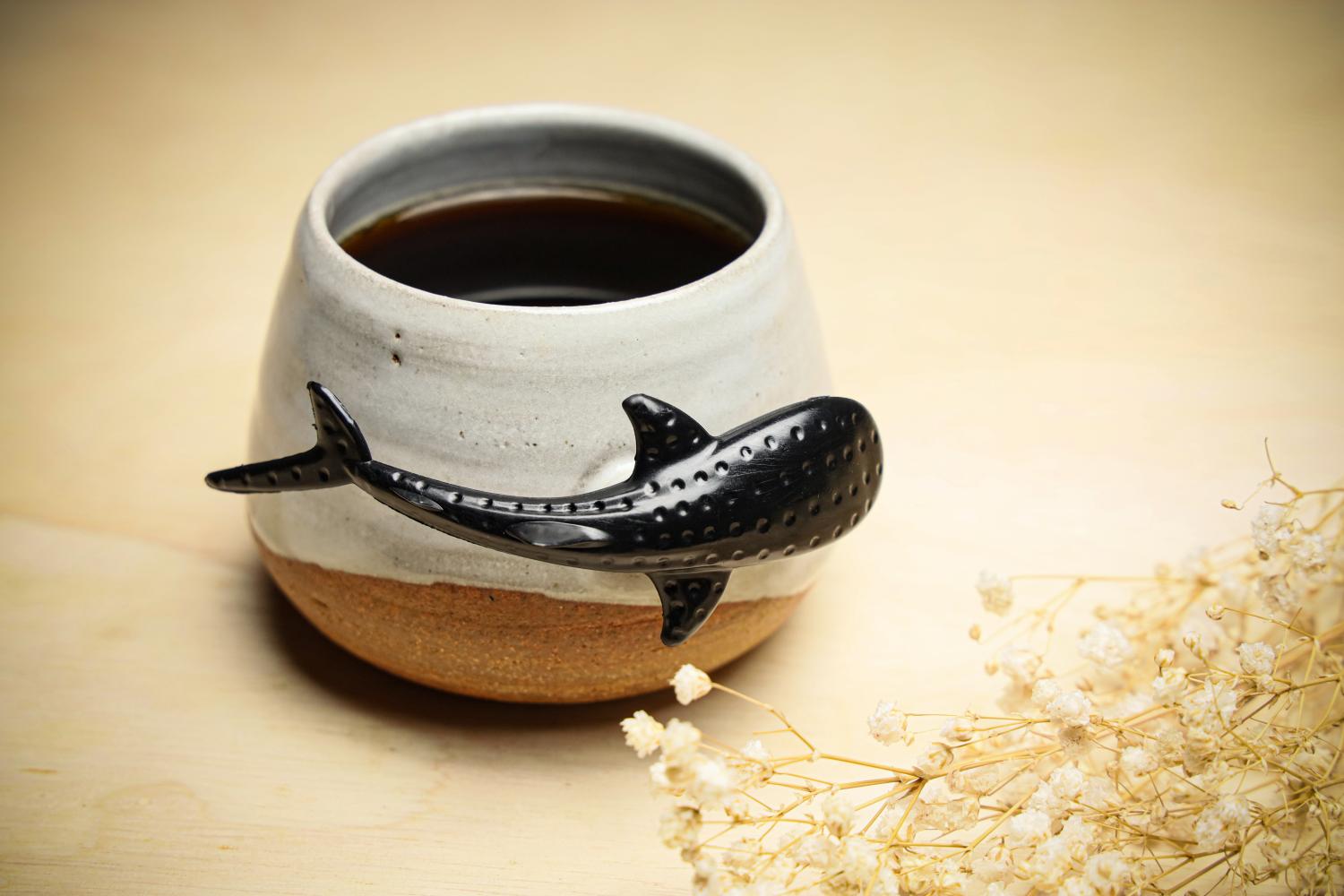Teerachai Suppameteekulwat of the sustainable and eco-friendly design company Qualy usually designs new products from recycled waste material, such as fishing nets, plastic bottle and caps, and bags.
Qualy products attract consumers who appreciate creative and stylish designs and are willing to pay more over concern for the environment. As a result, international customers, especially in Europe, are Qualy's main target customers.
At the recent Bangkok Design Week, Qualy surprised the public by launching amulets made from recycled materials. The amulets are called Phra Sati, which sounds like plastic in Thai. People who donated 100 baht to foundations specified by the company, or 1kg of waste to the Qualy Circular project via attanona.com, received one Phra Sati amulet. Phra Sati amulets were also given away to those who donated at least 200 baht to the Environmental Justice Foundation Thailand and the Love Wildlife ecological restoration project at the Bangkok Art & Culture Centre. Even though these two events have ended, Phra Sati is an open project that can be restarted for any good cause.

Fishing nets are one of several recycled materials that Qualy uses. Qualy Design
"Phra Sati is a collaboration between Qualy and Dots Design Studio. We thought that making amulets should not involve selling them for cash, but should be a charity project. The majority of the population in Thailand are Buddhists, so any project involving monks will capture the attention of people. Thus, we thought amulets could reach more people," said Teerachai, design director and co-founder of Qualy.
Nearly 3,000 amulets were given away to donors at the two events. It seemed like Thai people embraced the idea of upcycled amulets. However, some customers bristled at the idea of using waste material to create a religious symbol and voiced their displeasure on social media sites.
"Many people feel that recycled waste is cheap material and not worthy of an amulet," said Teerachai, adding that the negative feedback actually opened lines of discussion on recycling and conservation efforts.
"It was great because we normally do not discuss this topic in our daily life," he said.

The 'push stick'. Qualy Design
In order to appeal to younger generations, the design director said Phra Sati was inspired by the Apple Watch, so its design is minimal and has round corners. Aside from its modern design, the amulet also makes use of storytelling.
"When people wear Phra Sati, it reminds them to be in a rational state of mind. In consumerist culture, people are encouraged to have material possessions. People who try to purchase things beyond their means can get into trouble. Therefore, people should keep a rational state of mind when spending money," he said.
"Phra Sati is linked to the belief of rebirth in Buddhism. Buddhists believe if they do good deeds, they will be reborn in a good realm. If they behave badly, they will go to hell. Hence, we adapt this belief to waste materials. If people separate waste materials accurately, materials will go to the right place. They may go through a recycling or upcycling process. If materials are thrown away, they cannot be reborn or become recycled materials and get stuck in landfills or the ocean," Teerachai said.

The whale shark handmade ceramic mug promotes conservation efforts in Pattani.
Founded in 2004, Qualy first launched an eco-friendly line of products in 2018.
"In the past, the design strategy had customers as the centre. We started from customers' needs first, then designed products and chose materials based on those needs. Now we start from the purchasing of recycled materials first and then figure out how to make the materials relevant to customers," Teerachai said.
In collaboration with environmental organisations including the Environmental Justice Foundation Thailand and Won project, Qualy purchases recycled materials such as fishing nets, plastic bags and plastic film to produce its products.
Qualy's popular post-Covid 19 "push stick", used for pushing buttons in public places like ATMs and elevators, is made from recycled fishing nets. The "push and spray" is a push stick at one end with an alcohol spray at the other. The item was honoured at the Design Excellence Awards in Denmark last year. The "whale shark handmade ceramic mug", made from local soil on Koh Losin, is used to educate consumers on conservation efforts in Pattani to protect its native whale shark population.

The 'push and spray' was honoured at the Design Excellence Awards in Denmark in 2021. Qualy Design
"Normally, we spend months developing design ideas and launching a product, but we launched the push stick in around 10 days. At that time, we wanted to help society, so we did not focus on profit. The push stick, with its reasonable price [about 60 baht], sold over 100,000 pieces in the first month," he said.
Helping customers understand environmental issues and asking them to pay more for recycled products is a challenging endeavour. Teerachai hopes that Qualy can promote sustainable consumption to consumers and producers.
"We all should focus on the circular economy, sustainability and recycling. The new generation should be made conscious of the importance of these three things as they are trending in today's world. Companies should take action immediately. In the future, laws will compel every company to produce environmentally friendly products. At that point, being an environmentally conscious company will be required and not seen as trendy," Teerachai said.

Shark fin magnets remind people to stop eating shark fin soup. Qualy Design

Phra Sati amulets. Qualy Design

